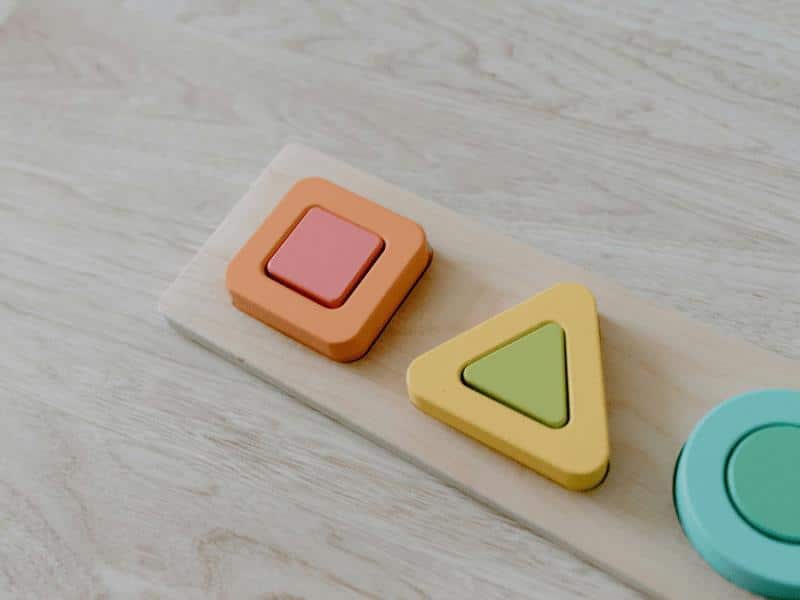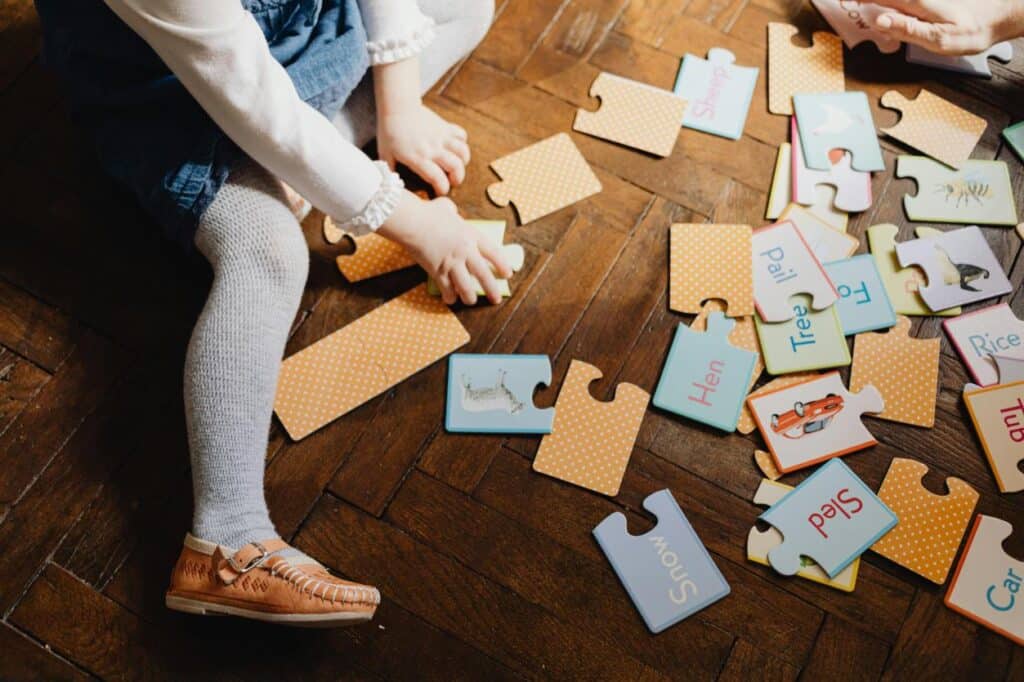
Can I Improve My Child’s Working Memory?
Parents frequently find themselves pondering the best ways to support their children’s cognitive development, especially when it comes to memory skills. Memory plays a crucial role in learning and overall cognitive function. From remembering where they left their favourite toy to retaining complex instructions, a strong working memory can significantly enhance a child’s ability to succeed in various aspects of life. Moreover, parents don’t always realize just how important memory is for their child’s well-being and future success in life. This article delves into the types of memory, how they work, why they are important, and practical ways to improve your child’s working memory.
Types of Memory
What are the differences between long-term, short-term, and working memory?
Short-Term Memory
Short-term memory refers to the capacity for holding a small amount of information in an active, readily available state for a short period. It involves the temporary storage of information, such as remembering a phone number long enough to dial it.
Long-Term Memory
Long-term memory is responsible for storing vast amounts of information over extended periods. This type of memory allows us to retain and retrieve knowledge, skills, and experiences that have been acquired throughout our lives.
Working Memory
Working memory is a form of short-term memory that involves the manipulation of information. It allows us to hold and process information temporarily for tasks such as problem-solving, decision-making, and comprehension.
How Memory Works
Memory involves a complex interplay of encoding, storage, and retrieval processes. Here’s a brief overview:
- Encoding: This is the process of transforming sensory input into a form that can be stored in memory. Effective encoding often involves associating new information with existing knowledge.
- Storage: Once encoded, information must be stored in the brain. Short-term memory holds information temporarily, while long-term memory stores it for future use.
- Retrieval: This is the process of accessing stored information when needed. Successful retrieval depends on how well the information is encoded and stored.
Importance of Memory
Memory is crucial for learning and development. It enables children to:
- Follow instructions and complete tasks.
- Learn new skills and acquire knowledge.
- Solve problems and make decisions.
- Understand and engage in social interactions.
- Retain and recall information for exams and schoolwork.
- Develop good language and communication skills.
- Build confidence through the mastery of activities.
- Develop critical thinking and reasoning abilities.
- Enhance creativity and imagination.
Developing Working Memory in Children
Engaging Activities
Engaging in games and activities developed to enhance memory can significantly improve a child’s working memory. Here are a few examples:
- Games and Puzzles: Activities like memory-matching games, puzzles, and board games can enhance working memory by challenging children to remember and manipulate information.
- Storytelling: Encouraging children to tell stories helps them practice sequencing events and recalling details, which strengthens their working memory. This activity involves holding multiple pieces of information and manipulating them to create a coherent narrative.
- Simon Says: This classic game requires children to remember and follow a sequence of actions. By listening carefully and responding accurately to commands like “Simon says touch your nose,” children exercise their working memory, particularly when the sequences become more complex.
- Memory Tray Game: Place several small objects on a tray and allow the child to study them for a minute. Then cover the tray and ask the child to list or write down as many objects as they can remember. This game helps improve visual memory and recall skills. Increase the number of items as your child’s confidence and ability grow with this game.
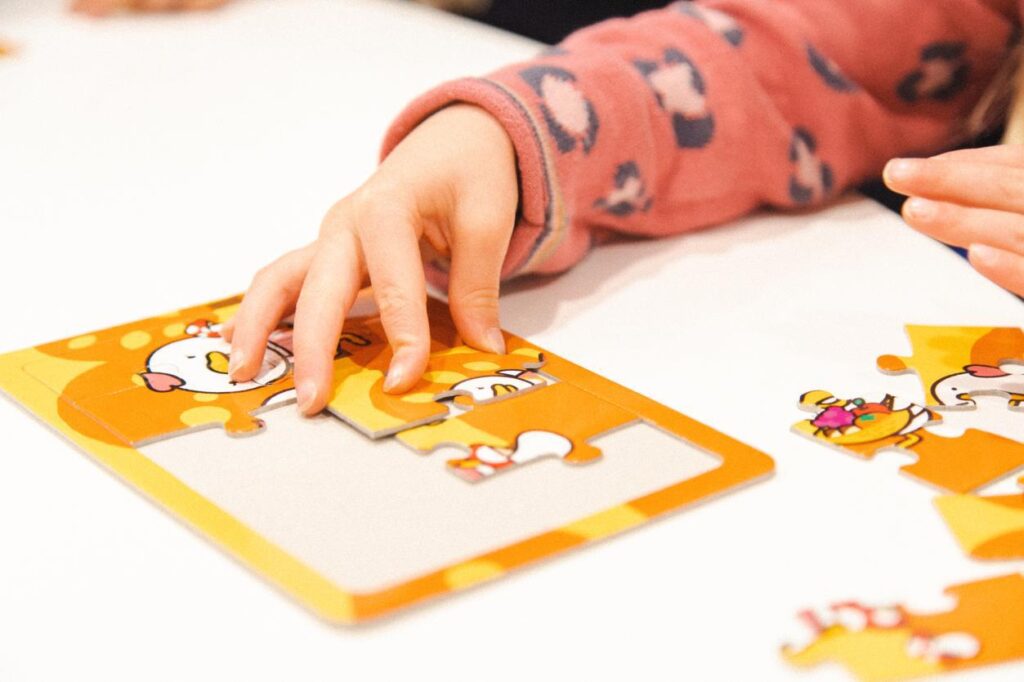
A toddler quickly completes a challenging puzzle in a Shichida Australia class. Puzzles enhance memory, cognitive skills, fine motor development, and problem-solving abilities in young children while promoting patience and a sense of achievement.
Daily Routines
Implementing consistent daily routines can also aid in developing working memory:
- Consistent Schedules: Establishing consistent daily routines helps children develop a sense of order and predictability, making it easier for them to remember and manage tasks.
- Checklists and Reminders: Using visual aids like checklists and reminders can help children remember their daily tasks and responsibilities. These tools provide a tangible reference that supports memory recall.
- Visual Weekly Schedule: Another effective visual aid is a weekly calendar. Maintaining a routine and helping your child know what to expect each day and throughout the week can enhance their ability to remember and plan ahead.
Educational Tools
Utilising educational tools can reinforce working memory skills:
- Flashcards: Using flashcards for learning new words, numbers, or concepts can reinforce memory through repetition and active engagement. Flashcards are a versatile tool that can be used in various learning scenarios.
- Memory Games: Digital apps and educational games designed to improve memory skills can be a fun and effective way to enhance working memory. These games often include activities that challenge memory recall and information manipulation.
- Educational Songs: Songs are an excellent tool for introducing new concepts and remembering complex information. The Shichida Method, for example, uses music to help children learn and remember their times tables up to the 19 times tables. Music is also used by Shichida to help memorise 500 digits of pi, making learning both fun and effective. Parents can use simple nursery songs for babies and toddlers as a memory tool at home. Encourage your little one to sing along and memorise the words and rhythms.
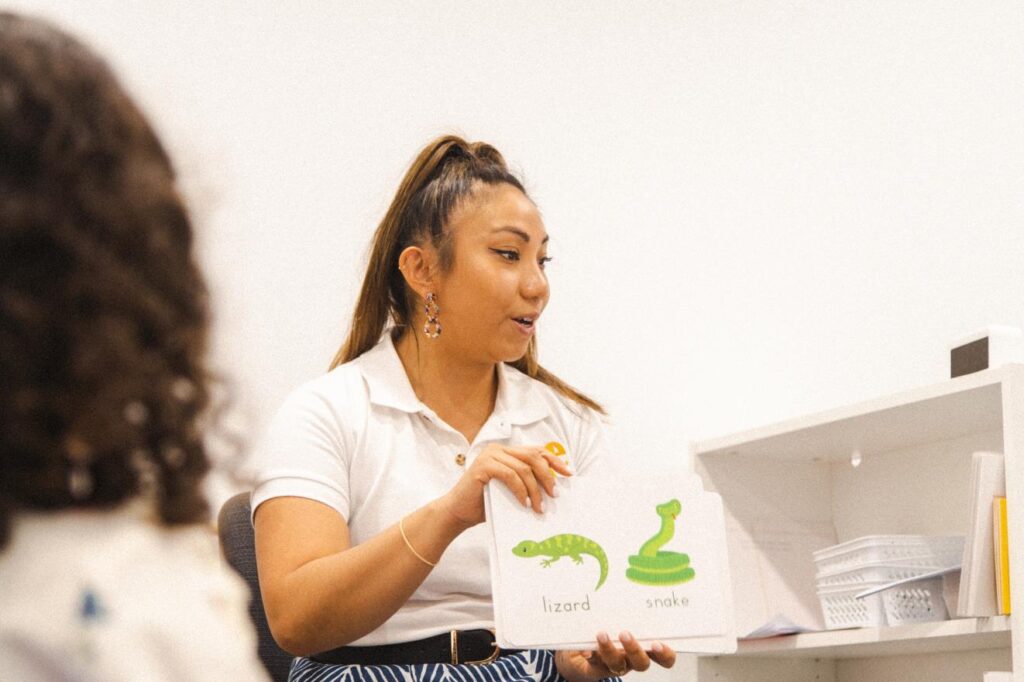
Shichida Australia teacher showing kids flashcards in a Shichida class.
Nutrition and Sleep
A healthy lifestyle supports overall cognitive function, including memory:
- Healthy Diet: A balanced diet rich in fruits, vegetables, whole grains, and proteins supports overall brain health and cognitive function. Nutrients like omega-3 fatty acids, found in fish, are particularly beneficial for brain health.
- Adequate Sleep: Ensuring children get enough sleep is vital for memory consolidation and cognitive performance. Sleep helps solidify information learned throughout the day, making it easier to recall later.
Practical Tips to Enhance Working Memory
- Break Information into Chunks: Breaking tasks or information into smaller, manageable chunks can help children process and remember information more effectively. This method reduces cognitive load and makes it easier to retain information.
- Encourage Active Learning: Encourage children to engage with material actively by asking questions, discussing topics, and teaching others. Active learning promotes deeper processing and better memory retention.
- Use Mnemonic Devices: Teach children mnemonic devices like acronyms, rhymes, or visual images to help them remember information. These tools create associations that make recall easier.
- Practice Mindfulness and Meditation: Mindfulness exercises and meditation can improve focus and attention, which are essential for effective working memory. These practices help children develop greater awareness and control over their cognitive processes.
Shichida Memory Development Techniques
The Shichida program works with students as young as one year old to begin strengthening their memory skills through structured memory training. Here are some of the techniques used:
- Photographic Memory: Students are taught to look at and remember a whole image and reproduce it accurately.
- Mnemonic Memory: Using stories and images helps children build connections between pieces of information.
- Auditory Memory: Through repetition of audio tracks played at rapid speed, the brain can encode large amounts of information quickly and easily.
Give your Child the Opportunity
Improving your child’s working memory is a vital part of supporting their overall cognitive development and preparing them for future success. By understanding the different types of memory and implementing strategies to enhance working memory, you can help your child develop the skills they need to excel in learning and in life. Remember, consistency and practice are key. The more opportunities children have to exercise their working memory, the stronger it will become.
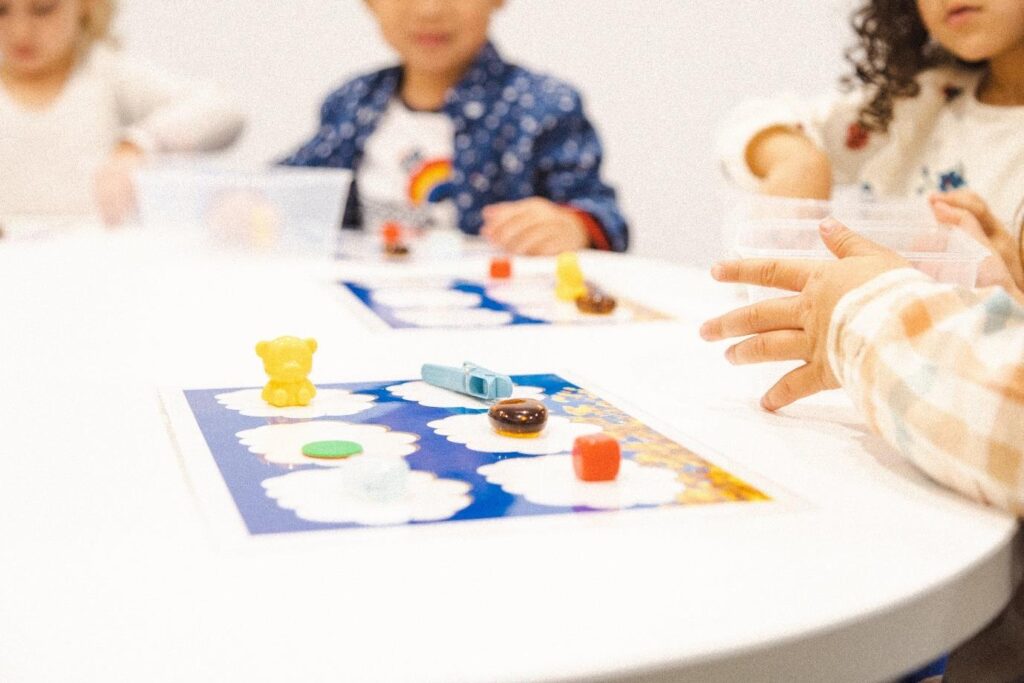
A fun memory game played by young children in a Shichida Australia class.
FAQs
Photographic memory, also known as eidetic memory, is the ability to recall images, sounds, or objects in great detail after only a few exposures.
It is estimated that a very small percentage of people have a true photographic memory. Most people with exceptional memory skills have trained their memory through various techniques rather than possessing an innate photographic memory.
You can enhance your child’s visual memory through practices like visualisation exercises, and memory games, and by encouraging them to pay attention to details in their environment from a young age.
Working memory involves not just the temporary storage of information (as with short-term memory) but also the manipulation and processing of that information for cognitive tasks like problem-solving and comprehension.
Yes, Shichida offers age-appropriate classes for babies, toddlers and preschoolers. These classes develop a variety of skills including memory, math, language, creativity, emotional intelligence and more. Memory development is however a large focus area of each class.
Try the Shichida Method
To learn more about techniques and tools to support your child’s cognitive development, book a trial class with Shichida Australia today. Our program provides comprehensive memory training that begins with students as young as one year old and equips them with advanced memory-enhancing tools that can be used throughout their lives. Visit our website or contact us for additional resources and support.
Listen to our Podcast Episode About Memory
Listen to “Developing a strong memory in your child”. In this podcast episode, we discuss how to support a strong memory in your child.

